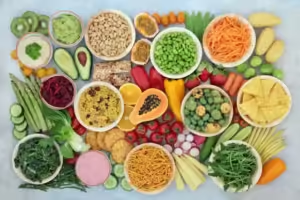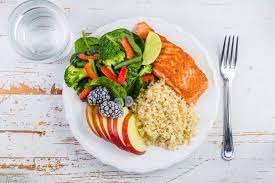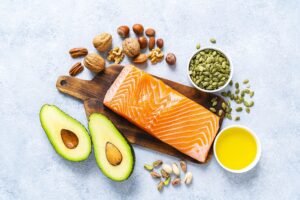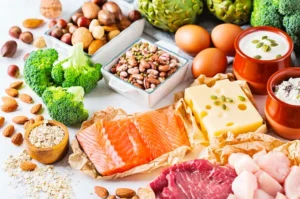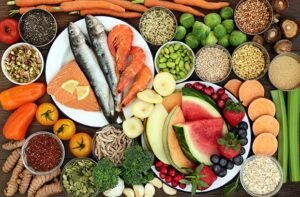Is it Possible to Lose 3 lbs in 3 Days?
Share on facebook Share on linkedin Share on whatsapp Share on tumblr Share on pinterest Share on telegram In a culture preoccupied with quick cures and quick results, the promise of dropping three pounds in three days is quite tempting. Whether you have a special event

In a world obsessed with quick fixes and rapid results, the promise of losing 3 pounds in just 3 days is undoubtedly tempting. Whether you have a special event coming up, a vacation on the horizon, or simply a desire to jumpstart your weight loss journey,
Table of Contents
Introduction
the allure of shedding those pounds in such a short time frame can be hard to resist. But is it actually possible to lose 3 pounds in 3 days in a safe and sustainable way, or is this just another dieting myth? In this comprehensive article, we will delve into the science of weight loss, explore various methods and diets that claim to offer such rapid results, and ultimately determine whether it’s a realistic and healthy goal.

Understanding Weight Loss Basics

Understanding the basics of weight loss is essential before delving into the possibility of losing 3 pounds in 3 days. Weight management is a multifaceted process influenced by various factors, including diet, physical activity, genetics, metabolism, and more. It’s not a one-size-fits-all equation but rather a dynamic interplay of these elements.
At the heart of weight loss is the concept of a calorie deficit. Put simply, this means that you burn more calories than you consume. This fundamental principle underscores the idea that weight loss requires an energy imbalance in the right direction. To shed excess pounds, you need to create a situation where your body is using more energy than it takes in.
To clarify further, consider the following:
- Calorie Intake vs. Calorie Expenditure: Your body requires a certain number of calories to maintain its current weight. This number varies from person to person, depending on factors like age, gender, activity level, and metabolic rate. When you consume fewer calories than your body needs, it turns to stored energy sources, primarily fat, to make up the difference. This leads to weight loss.
- Consistency is Key: Weight loss doesn’t happen overnight. It’s a gradual process that requires consistency over time. If you consistently maintain a calorie deficit, you will steadily lose weight. However, it’s important to note that weight loss rates can vary, and they may not always match your expectations.
- Sustainability and Health: While rapid weight loss might be tempting, it’s crucial to prioritize sustainable and healthy practices. Extreme diets or excessive calorie restriction can lead to nutrient deficiencies, muscle loss, and metabolic slowdown. A sustainable approach to weight loss should support your overall well-being.
- Individual Factors: Every person’s weight loss journey is unique. Genetics, hormones, and individual responses to dietary and exercise changes can all play a role in determining how quickly and efficiently you lose weight. It’s important not to compare your progress to others, as what works for one person may not work the same way for you.
The 3 Pounds in 3 Days Claim

The allure of losing 3 pounds in just 3 days is undeniably appealing, especially for those seeking quick fixes and rapid results. However, it’s essential to critically examine the methods and claims associated with this goal, as they often involve fad diets and extreme weight loss techniques that come with risks and drawbacks.
3.1 Crash Diets and Severely Restrictive Calorie Intake
One of the most prevalent approaches to achieving rapid weight loss is through crash diets, characterized by their drastic reduction in calorie intake. These diets typically advocate consuming as few as 800 to 1200 calories per day, which is significantly lower than the daily caloric needs of most adults. The underlying premise of crash diets is that by creating a substantial calorie deficit, the body will resort to burning fat stores for energy, resulting in rapid weight loss.
While it’s true that a calorie deficit is necessary for weight loss, extreme calorie restriction comes with a plethora of potential health risks:
- Nutrient Deficiencies: Severely limiting calorie intake often leads to nutrient deficiencies. Essential vitamins, minerals, and macronutrients may be insufficiently supplied to the body, potentially causing various health problems.
- Muscle Loss: Rapid weight loss due to extreme calorie restriction can lead to muscle loss. Muscle tissue is metabolically active and contributes to overall calorie burning. Losing muscle can slow down your metabolism.
- Fatigue and Weakness: Low-calorie diets can result in fatigue, weakness, and reduced physical and mental energy. This can affect your daily life, productivity, and overall well-being.
- Slowed Metabolism: Prolonged calorie restriction can trigger a metabolic adaptation, where the body becomes more efficient at conserving energy. This can make it harder to continue losing weight at the same rate.
- Difficulty Sustaining the Diet: Crash diets are often unsustainable in the long term due to their extreme nature. Once you resume normal eating habits, the lost weight tends to return, often leading to a cycle of yo-yo dieting.
3.2 Water Weight Manipulation
Another tactic used to achieve the goal of losing 3 pounds in 3 days revolves around manipulating water weight. This approach focuses on reducing sodium intake and increasing water consumption to flush out excess water from the body. While it’s true that a significant portion of our body weight is attributed to water, it’s crucial to understand that losing water weight is not synonymous with losing fat.
Here’s how water weight manipulation works:
- Reduced Sodium Intake: Sodium is known to cause water retention in the body. By reducing sodium intake, typically through avoiding high-sodium foods, the body retains less water, leading to a temporary drop in weight. This reduction is primarily due to the body excreting excess water.
- Increased Water Consumption: Paradoxically, increasing water consumption can lead to temporary water weight loss. When you drink more water, your body can excrete excess fluid through urine. This process can create the illusion of weight loss on the scale.
However, it’s essential to recognize that manipulating water weight does not address the core issue of excess body fat. It merely provides a temporary and often deceptive reduction in scale weight. Once you return to your usual dietary habits and hydration levels, the lost water weight quickly returns.
Factors Affecting Daily Weight Fluctuations

Understanding the factors that contribute to daily weight fluctuations is crucial before delving into discussions about rapid weight loss methods. These fluctuations are a natural part of the body’s complex and dynamic processes, and they can often obscure the true progress of weight management. Here are some common factors that can lead to daily weight variations:
4.1 Water Retention: Water retention, also known as fluid retention or edema, plays a significant role in daily weight fluctuations. It occurs when excess fluids accumulate in the body’s tissues. Several factors can influence water retention:
- Sodium Intake: High salt (sodium) intake can lead to increased water retention, as the body retains water to help dilute the excess sodium.
- Hormonal Changes: Hormonal fluctuations, such as those during the menstrual cycle or pregnancy, can impact water retention. Estrogen and progesterone levels can affect fluid balance.
- Hydration Levels: Paradoxically, not drinking enough water can lead to water retention, as the body tries to conserve fluids when it senses dehydration.
These variations in water retention can lead to noticeable changes in daily weight, even though they do not represent true fat loss or gain.
4.2 Digestive Process: The food you consume and its transit through your digestive system can temporarily influence your weight. The weight of the food itself, along with waste products and gases produced during digestion, can add to your body’s total weight.
- Food Volume: Consuming a large meal can increase your weight due to the physical presence of the food in your digestive tract. However, this added weight is temporary and is not indicative of fat gain.
- Waste Elimination: The process of waste elimination through bowel movements can result in fluctuations in body weight. A substantial bowel movement can lead to a temporary reduction in weight.
4.3 Exercise: Engaging in physical activity, whether it’s a vigorous workout or even a simple walk, can cause temporary weight fluctuations for several reasons:
- Sweat Loss: When you exercise, you lose water through sweating. This fluid loss can lead to a decrease in your body weight immediately after exercising. However, this is just a temporary change and reflects fluid loss rather than fat loss.
- Muscle Glycogen Storage: Intense exercise can also cause the muscles to store more glycogen, which binds to water. As a result, your muscles may temporarily weigh more due to this increased water content.
4.4 Hormonal Changes: Hormones play a pivotal role in regulating various physiological processes, including metabolism and fluid balance. Women, in particular, may experience weight fluctuations during their menstrual cycles due to hormonal shifts, which can influence water retention and appetite.
4.5 Food Intake: The amount and type of food you consume can directly impact your weight. Consuming a large meal or foods high in salt can temporarily increase your weight due to water retention and the physical presence of food in your digestive tract.
4.6 Stress: Stress can trigger hormonal changes in the body, such as the release of cortisol, a hormone that can influence metabolism and appetite. Stress-related weight fluctuations may occur as a result of these hormonal changes.
Understanding these factors is crucial because they highlight the dynamic nature of daily weight changes. While it’s common for your weight to fluctuate by a few pounds from day to day, these variations are not necessarily indicative of significant fat loss or gain. Instead, they often reflect changes in water balance, food consumption, exercise, and hormonal fluctuations.
The 3-Day Diets: Do They Work?

The allure of quick weight loss has led to the popularity of various 3-day diets, each claiming to help you shed 3 pounds in just as many days. These diets often promise rapid results through extreme calorie restriction, specific food combinations, or detoxification processes. However, it’s essential to critically evaluate the efficacy and potential drawbacks of such diets.
5.1 Military Diet:
The Military Diet, also known as the 3-Day Diet, has gained attention for its promise of swift weight loss. Here’s how it typically works:
- Strict Meal Plan: The Military Diet involves a highly structured meal plan for three days, during which you must strictly adhere to specific foods and portion sizes. The diet often includes foods like grapefruit, toast, eggs, hot dogs, and ice cream, combined in specific ways.
- Calorie Restriction: The daily caloric intake on this diet is significantly low, typically ranging from 800 to 1100 calories per day. Such extreme calorie restriction creates a substantial calorie deficit.
- Intermittent Fasting: Some versions of the Military Diet incorporate intermittent fasting, with the majority of calories consumed in a short window of time.
Weight Loss Mechanism:
The weight loss achieved on the Military Diet can be attributed to a few factors:
- Calorie Deficit: The primary reason for weight loss on this diet is the creation of a severe calorie deficit. With such low calorie intake, the body is forced to use its energy stores, including glycogen and fat, resulting in weight loss.
- Water Weight Loss: The initial drop in weight observed on the Military Diet is often due to water weight loss. Low carbohydrate intake and calorie restriction can lead to reduced glycogen stores, which bind to water in the body. As glycogen is depleted, water is released, contributing to the drop in scale weight.
Drawbacks and Considerations:
While some individuals may experience short-term weight loss on the Military Diet, it comes with several significant drawbacks and limitations:
- Nutrient Deficiency: The diet lacks diversity and may lead to nutrient deficiencies, as it excludes various food groups and does not provide a balanced range of vitamins and minerals.
- Sustainability: The extreme nature of the diet makes it challenging to sustain over time. The monotony of the meal plan can lead to cravings and feelings of deprivation, potentially resulting in binge eating once regular eating habits are resumed.
- Loss of Muscle Mass: Rapid weight loss through extreme calorie restriction can result in muscle loss. Muscle tissue is metabolically active and contributes to calorie burning. Losing muscle can slow down the metabolism.
- Yo-Yo Dieting: The Military Diet’s short duration and rapid weight loss can contribute to a cycle of yo-yo dieting, where individuals repeatedly lose and regain weight, which is detrimental to health.
Limited Evidence: Scientific evidence supporting the long-term efficacy and safety of the Military Diet is limited.
5.2 The Cabbage Soup Diet:
The Cabbage Soup Diet is another short-term weight loss plan designed to produce quick results. Here’s how it typically works:
- Cabbage Soup: The diet centers around consuming a low-calorie cabbage soup for seven days. Participants are encouraged to eat specific fruits and vegetables on designated days, along with the soup.
- Calorie Restriction: Similar to the Military Diet, the daily caloric intake on the Cabbage Soup Diet is exceptionally low, typically around 800 to 1000 calories.
Weight Loss Mechanism:
The weight loss achieved on the Cabbage Soup Diet can be attributed to factors similar to the Military Diet:
- Calorie Deficit: The primary driver of weight loss is the significant calorie deficit created by the low-calorie nature of the diet.
- Water Weight Loss: The initial drop in weight often results from water weight loss due to reduced glycogen stores and calorie restriction.
Drawbacks and Considerations:
The Cabbage Soup Diet shares many of the same limitations as the Military Diet:
- Nutrient Deficiency: The diet lacks essential nutrients, and its limited food variety can lead to nutrient deficiencies.
- Sustainability: The monotony of consuming cabbage soup and the severe restrictions make it difficult to maintain in the long term.
- Muscle Loss: Rapid weight loss on this diet can lead to muscle loss and a decreased metabolism.
- Rebound Weight Gain: As with many extreme diets, once regular eating patterns are resumed, individuals may regain the lost weight, potentially leading to a cycle of yo-yo dieting.
5.3 The 3-Day Detox Cleanse:
Detox diets and cleanses are often marketed as a way to detoxify the body and achieve rapid weight loss. Here’s how they typically work:
- Limited Food Selection: Detox cleanses involve consuming a restricted range of foods and beverages for a short period, such as three days. Some may incorporate fasting periods or detox supplements.
- Calorie Restriction: Similar to the previous diets, detox cleanses usually involve calorie restriction, leading to a calorie deficit.
Weight Loss Mechanism:
The weight loss observed during detox cleanses can be attributed to calorie restriction and water weight loss, similar to the other diets discussed:
- Calorie Deficit: The limited calorie intake results in a calorie deficit, leading to weight loss.
- Water Weight Loss: As with previous diets, water weight loss may occur due to reduced glycogen stores and potential diuretic effects of certain detox ingredients.
Drawbacks and Considerations:
Detox cleanses come with several considerations and potential drawbacks:
- Lack of Scientific Evidence: The concept of detoxification, as it is commonly marketed, lacks strong scientific support. The body’s natural detoxification processes, primarily carried out by the liver and kidneys, do not necessarily require external detox products or extreme dietary interventions.
- Nutrient Deficiency: Detox cleanses often lack a balanced range of nutrients and may lead to deficiencies.
- Sustainability: These short-term diets are typically not sustainable in the long term, and any weight lost is likely to return once regular eating habits are resumed.
- Potential for Harm: Some detox cleanses may involve the use of laxatives, diuretics, or herbal supplements, which can have adverse effects and may not be safe for everyone.
Note: There might be affiliate links mentioned here. We may receive a commission if you purchase a product through an affiliate link. There is no additional charge for you. Please do your own research before making any online purchases.
Risks and Drawbacks of Rapid Weight Loss

Rapid weight loss may seem appealing due to its promise of quick results, but it’s crucial to recognize the potential risks and drawbacks associated with such approaches. Here are some of the key concerns:
6.1 Muscle Loss:
One significant drawback of rapid weight loss is the loss of muscle mass. When you drastically reduce calorie intake or follow an extreme diet, the body may not discriminate between burning fat and muscle for energy. Unfortunately, muscle tissue is metabolically active and burns more calories at rest than fat tissue. Thus, losing muscle can slow down your metabolism, making it harder to maintain weight loss in the long term. This can result in a cycle where you regain weight more easily than before, as your metabolism has slowed.
6.2 Nutrient Deficiencies:
Severely restrictive diets, especially those that focus on limited food groups or extreme calorie reduction, often lead to nutrient deficiencies. These diets may lack essential vitamins, minerals, and other nutrients necessary for overall health. Over time, nutrient deficiencies can lead to a range of health problems, including fatigue, weakened immune function, hair and skin issues, and more. It’s important to recognize that sustainable weight loss should not come at the expense of your overall health.
6.3 Metabolic Adaptation:
When you significantly reduce calorie intake, your body can adapt by becoming more efficient at conserving energy. This adaptive response, often referred to as metabolic adaptation or “starvation mode,” can slow down your metabolism. Your body essentially learns to function on fewer calories, making it challenging to continue losing weight at the same rate as when you first started the extreme diet. As a result, weight loss may stall, and you may need to further reduce calorie intake to see any progress, which can be unsustainable and unhealthy.
6.4 Rebound Weight Gain:
One of the most common consequences of rapid weight loss is rebound weight gain. Once you return to normal eating habits after an extreme diet, your body is primed to store excess calories as fat. This can lead to rapid weight regain, sometimes even surpassing your initial weight. This cycle of weight loss followed by regain, often referred to as yo-yo dieting, is not only frustrating but also detrimental to your health. It can increase the risk of chronic conditions like heart disease, diabetes, and high blood pressure.
6.5 Lack of Sustainability:
Extreme diets are rarely sustainable in the long term. The restrictive nature of these diets can be mentally and physically exhausting, leading to feelings of deprivation and frustration. This can make it challenging to maintain healthy eating habits and adhere to the diet over time. In many cases, people find themselves returning to their previous eating patterns once they can no longer endure the restrictions, resulting in weight regain.
Achieving Realistic and Sustainable Weight Loss

Achieving realistic and sustainable weight loss is a journey that requires careful planning and a focus on long-term health and well-being. While the allure of rapid weight loss may be tempting, it’s important to understand that such approaches often come with risks and are unlikely to lead to lasting results. Here are some guidelines to help you embark on a healthy and sustainable weight loss journey:
7.1 Set Realistic Goals:
Instead of fixating on the idea of losing a substantial amount of weight in a short period, set realistic and achievable goals. Aim for gradual progress, as this is more likely to lead to long-term success. Recognize that healthy weight loss typically occurs at a rate of 0.5 to 2 pounds per week. This pace allows your body to adjust to the changes and reduces the risk of muscle loss and metabolic slowdown.
7.2 Balance Your Diet:
Focus on adopting a balanced diet that includes a variety of foods from all food groups. A balanced diet ensures that you’re getting a wide range of essential nutrients necessary for overall health. Prioritize whole foods, such as fruits, vegetables, whole grains, lean proteins, and healthy fats. Avoid extreme diets that exclude entire food groups or severely restrict calorie intake, as they often lead to nutrient deficiencies.
7.3 Portion Control:
Pay attention to portion sizes to avoid overeating. Be mindful of how much you’re eating, as even healthy foods can contribute to weight gain if consumed in excess. Eating smaller, more frequent meals throughout the day can help regulate hunger and control calorie intake. Additionally, practice mindful eating by savoring each bite and listening to your body’s hunger cues.
7.4 Regular Physical Activity:
Incorporate regular physical activity into your daily routine. A combination of cardiovascular exercises, such as walking, jogging, or cycling, and strength training exercises can help you burn calories, build muscle, and improve overall fitness. Aim for at least 150 minutes of moderate-intensity aerobic activity or 75 minutes of vigorous-intensity aerobic activity per week, along with muscle-strengthening activities on two or more days a week.
7.5 Stay Hydrated:
Drink plenty of water throughout the day to stay hydrated. Sometimes, thirst can be mistaken for hunger, leading to unnecessary calorie consumption. Staying well-hydrated is essential for overall health and can also support your weight loss efforts.
7.6 Manage Stress:
Find healthy ways to manage stress, as chronic stress can affect your eating habits and metabolism. Stress eating or turning to comfort foods can hinder your weight loss progress. Incorporate stress-reduction techniques into your daily routine, such as mindfulness meditation, deep breathing exercises, or engaging in hobbies that bring you joy.
7.7 Seek Professional Guidance:
If you’re unsure about the best approach to weight loss or if you have underlying health conditions, consider consulting a registered dietitian or healthcare professional. They can provide personalized guidance and support tailored to your specific needs and goals. A healthcare provider can also help you determine a safe and effective calorie target for your weight loss journey.
FAQs (Frequently Asked Questions)
Q1. Is it possible to lose 3 pounds in 3 days safely?
A1. While it’s theoretically possible to lose 3 pounds in 3 days, achieving this goal in a safe and sustainable manner is challenging. Most rapid weight loss methods involve severe calorie restriction and may lead to negative health consequences.
Q2. What factors contribute to daily weight fluctuations?
A2. Daily weight fluctuations are influenced by various factors, including water retention, digestive processes, exercise, hormonal changes, food intake, and stress. These fluctuations are often unrelated to fat loss or gain.
Q3. Do crash diets like the Military Diet work for rapid weight loss?
A3. Crash diets, like the Military Diet, may lead to rapid weight loss due to extreme calorie restriction, but the results are often temporary. These diets are not sustainable and can have adverse effects on health.
Q4. What is the risk of nutrient deficiencies with rapid weight loss diets?
A4. Rapid weight loss diets can lead to nutrient deficiencies because they often lack essential vitamins and minerals. Such deficiencies can result in fatigue, weakened immune function, and other health problems.
Q5. How does muscle loss affect metabolism during rapid weight loss?
A5. Muscle loss during rapid weight loss can slow down metabolism, making it harder to maintain weight loss. Muscle tissue burns more calories at rest than fat tissue, so losing muscle can reduce calorie expenditure.
Q6. Is it better to aim for slow and steady weight loss?
A6. Yes, slow and steady weight loss is generally more sustainable and healthier than rapid weight loss. Aim for a rate of 0.5 to 2 pounds per week to minimize muscle loss and metabolic adaptation.
Q7. Can I achieve rapid weight loss without the risk of rebound weight gain?
A7. Rapid weight loss diets are often associated with rebound weight gain once normal eating habits are resumed. Sustainable, long-term changes in diet and lifestyle are key to avoiding this cycle.
Q8. Are detox cleanses effective for rapid weight loss?
A8. Detox cleanses may lead to temporary weight loss, but the concept of detoxification as commonly marketed lacks strong scientific support. The weight lost is often due to calorie restriction and water weight loss.
Q9. What role does stress play in weight fluctuations and weight loss?
A9. Stress can influence weight fluctuations by triggering hormonal changes that affect metabolism and appetite. Finding healthy ways to manage stress is important for successful weight loss.
Q10. How can I determine a safe calorie intake for weight loss?
A10. Consult with a registered dietitian or healthcare professional to determine a safe and effective calorie target for your weight loss journey. They can provide personalized guidance based on your specific needs and goals.
Conclusion
While the idea of losing 3 pounds in 3 days may seem enticing, it’s important to approach such claims with caution. Rapid weight loss methods, such as crash diets and extreme cleanses, often come with risks and are unlikely to lead to sustainable results. Instead, focus on adopting healthy eating habits, regular physical activity, and realistic weight loss goals that prioritize your long-term health and well-being. Remember that achieving and maintaining a healthy weight is a journey, and it’s essential to prioritize your overall health above quick fixes or extreme measures.
Disclaimer: The information provided in this article is for educational purposes only and should not be considered as a substitute for medical advice. Consult a healthcare professional before implementing any home remedies or making significant changes to your lifestyle.







